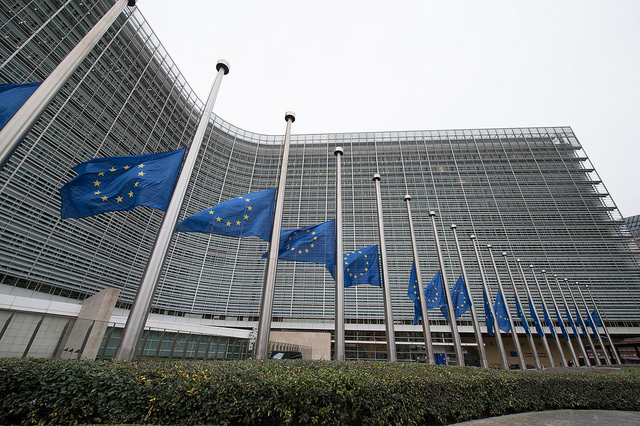 European External Action Service (EEAS)
European External Action Service (EEAS)
Paris Terrorist Attacks Aftermath: The EU Mutual Defense Clause
Last weekend France – for the second time this year – was hit by a series of coordinated terrorist attacks on its capital. The iconic city of love once again found itself at the main stage of international terrorism. President Francois Hollande addressed a joint session of both houses of parliament in Versailles on Monday, November 16th. He did not mince words: ‘France is at war’. An unexpected move followed, the French President announced that his country for the first time in history intended to invoke article 42.7 of the EU Lisbon Treaty – the EU Common Defense and Security Policy. This move gives us an interesting insight into France’s foreign policy strategy.
Article 42.7 of the EU Common Defense and Security Policy can best be described as the European Union’s version of NATO’s collective self-defense clause – better known as Article 5. Article 42.7 states that ‘if a member state is the victim of aggression on its territory, the other Member States shall have towards it an obligation of aid and assistance by all the means in their power’. NATO’s Article 5 was first invoked after the terrorist attacks of 9/11. The fact that Paris right now seems to bypass NATO by invoking Article 42.7 instead of Article 5 is a remarkable signal.
By giving priority to the EU institutions rather than turning to NATO for help, the French are clearly signaling their hope of a unified European response rather than a transatlantic (de facto Washington-led reaction). This fits into a long tradition of French ideals of Europeanization over trans-atlanticism. French foreign policy is modeled after exactly these ideals: in a strong and unified Europe, France can be a leading country.
President Hollande meets with Secretary Kerry following the horrific attacks in Paris
This move also indicates that the French are not convinced a strong NATO-led response to the Paris Attacks would best align with their national security interests. Instead, by shaping a European response to these specific attacks – besides being part of the US-led international coalition that is already fighting ISIS – France can increase its influence in Europe and the Middle East. The most important reason behind this is Russia.
Russia is an important factor in France’s calculus, because both are fighting ISIS and the Russians are not keen on increasing NATO influence in the Middle East. It is no secret that ever since the end of the Cold War the Russians have distrusted NATO and specifically its global presence in international conflicts. Russia is vehemently opposed to a global role for the transatlantic security community and sees this a provocation and possible threat to their national security. For the Russians, NATO influence equals US influence. This is exactly why the French invoked the European Common Defense and Security Policy and not NATO’s mutual self-defense clause; their response can now be branded as ‘European’ rather than as ‘NATO’.
Since Russia entered the geopolitical chessboard of the Syrian War, it has become increasingly more difficult to assess the intentions of all actors involved. With many major powers fighting on different sides of the conflict, a political solution to the civil war in Syria has increasingly become more difficult to reach. What is needed is transparency and diplomacy. The policy of France to not further involve NATO by invoking their controversial self-defense clause helps in shaping this more transparent environment and is a minor but important step towards diplomatic success.






Very interesting article, eventough im not sure if recalling article 42 can be seen as a strategic choice of Europeanism over Atlanticism per se. The Atlantism in the French foreign policy is always been rather underestimated. I would say France is using both pillars to punish the perpetrators of this terrible attack.
Interesting article, but don’t you think invoking the EU clause as opposed to the NATO clause could be intended as a way to involve more pacifist and less-involved countries in the war on terror. You are right, however, that it fits in a long tradition of Europeanization.